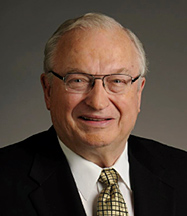The U.S. Supreme Court has issued a landmark ruling in North Carolina State Board of Dental Examiners v Federal Trade Commission, a case initiated with an FTC administrative complaint "alleging that the Board's concerted action to exclude nondentists from the market for teeth whitening services in North Carolina constituted an anticompetitive and unfair method of competition under the Federal Trade Commission Act."
George McAndrews, Esq., lead counsel in the Wilk v AMA lawsuit, puts the Supreme Court ruling in perspective and explains how it could hamstring state medical board attempts to suppress legal competition by DCs and other health care professionals.
I have been watching this case develop for several years. I have always felt that the Wilk v AMA case was authoritative in ending private, monopolistic activities of the AMA and its state, county and local affiliates in interfering with the individual judgment of a medical doctor to VAP – voluntarily associate professionally – with a doctor of chiropractic. Unfortunately, within a short while after Wilk, a group of MDs, working through a hospital medical staff, and a professional center, ruined the career of a neurosurgeon who elected to form a group practice with a DC.
 Their activities were so clumsy, coming so soon after the Wilk antitrust decision, that I elected, on behalf of the chiropractor involved, Dr. Chinnici, to bring not only antitrust charges against the hospital, professional center, and all the involved medical doctors, but also to add a civil RICO (Racketeering and Corrupt Organization) count.
Their activities were so clumsy, coming so soon after the Wilk antitrust decision, that I elected, on behalf of the chiropractor involved, Dr. Chinnici, to bring not only antitrust charges against the hospital, professional center, and all the involved medical doctors, but also to add a civil RICO (Racketeering and Corrupt Organization) count.
The defendants immediately moved in court to throw out the RICO count, but the United States District Court charged with hearing the case denied their motion. The court's decision allowing the RICO count was prominently published on the front page of the American Medical News. The case was then settled.
Thereafter, since the Wilk and Chinnici cases threatened heavy antitrust and civil RICO penalties for those in the medical profession seeking to interfere with any medical physician's decision to VAP with a doctor of chiropractic, the medical schemers and their federal, state and local entities sought protection under the state action doctrine that appeared to immunize from legal liability any action of a state agency that acted in carrying out its functions.
In other words, they shifted their private illegal activities to state medical boards in an effort to immunize their actions from serious legal challenge.
The North Carolina State Dental Board, in a naked effort to prevent big-box and department stores from operating kiosks where teeth whitening was performed, sent out notices threatening the stores with potential criminal action for the unauthorized practice of dentistry. There were also letters mentioning that the actions of the kiosks were destroying the profitability of teeth whitening for the dentists.
 This merely brought to the forefront the outrageous misuse of state boards to monopolize business aspects of their professions. Interestingly, the American Medical Association joined the dental board as a "friend of court" before the Supreme Court and filed a supporting brief in favor of unfettered actions by state boards.
This merely brought to the forefront the outrageous misuse of state boards to monopolize business aspects of their professions. Interestingly, the American Medical Association joined the dental board as a "friend of court" before the Supreme Court and filed a supporting brief in favor of unfettered actions by state boards.
The case proceeded slowly through the courts, but in a landmark decision, the Supreme Court finally has decided that state boards which allow "participants" to set the restraint-of-trade rules without actual government, nonparticipant control, will not be afforded the state action defense in a lawsuit. In my opinion, that should bring the Wilk and Chinnici rules into play whenever state medical boards attempt to squelch "legal" professional cooperation between doctors of medicine, doctors of chiropractic or other professionals; cooperation that oftentimes would directly benefit patients, the professionals involved or society at large. It should also be of value when state medical boards under the control of participants illegally attempt to broaden their asserted control activities at the expense of legitimate activities by competitive professions and/or professionals.
Another equally horrendous negative of the misuse of "participant controlled" state boards is the heavy economic burden placed on the shoulders of private professionals when contesting allegedly illegal actions of the state boards (which have access to tax funding). That imbalance is often used by state medical boards to pressure targets into surrendering their rights without any real opportunity to defend them. This should call for legislative relief; at the very least, the professions being targeted should approach the Justice Department or the Federal Trade Commission and ask them to be extremely sensitive to the naked efforts of dominant medical boards to misuse state boards to effectuate illegal restraints of trade or racketeering activities. The state attorney general should also be involved, and of course, interested legislators should be informed of the attempted misuse of legislation by monopolists.
When all is said and done, it is the welfare of the patient and society at large that should control – not the selfish interests of participating medical doctors who just happen to be on state medical boards.
George McAndrews served as lead trial counsel for the successful plaintiffs in the celebrated 14-year antitrust case, Wilk et al v. AMA et al.; and as lead plaintiff's counsel in the racketeering case Chinnici v Central DuPage Hospital et al. (1990). Learn more by clicking here.
Dynamic Chiropractic editorial staff members research, investigate and write articles for the publication on an ongoing basis. To contact the Editorial Department or submit an article of your own for consideration, email
.




